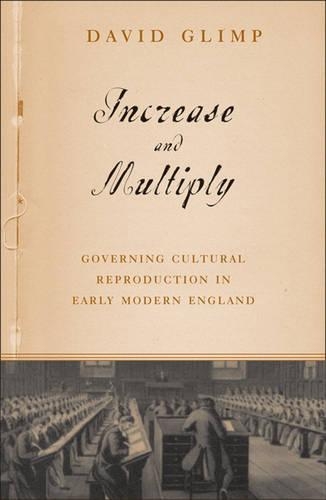
Increase And Multiply: Governing Cultural Reproduction In Early Modern England
(Paperback)
Publishing Details
Increase And Multiply: Governing Cultural Reproduction In Early Modern England
By (Author) David Glimp
University of Minnesota Press
University of Minnesota Press
1st March 2003
United States
Classifications
Professional and Scholarly
Non Fiction
820.9
Physical Properties
Paperback
260
Width 149mm, Height 229mm
Description
Across the sixteenth and seventeenth centuries, a growing notion of the value of a large populace created a sense of urgency about reproduction; accordingly, a wide array of English writers of the time voiced the need not merely to add more people but also to ensure that England had an abundance of the right kinds of people. This need, in turn, called for a variety of institutions to train--and thus make, through a kind of nonbiological procreation--pious, enterprising, and dutiful subjects. In Increase and Multiply, David Glimp examines previously unexplored links between this emergent demographic mentality and Renaissance literature. Glimp's analysis centers on humanist pedagogy as a mechanism for creating people capable of governing both themselves and others. Acknowledging the ways in which authors such as Sidney, Shakespeare, and Milton advance their own work by appealing to this vision, Glimp argues that their texts allow us to read the scope and limits of this generative ideal, its capacity to reinforce order and to become excessive and destabilizing. His work provides unprecedented insight into the role of fantasies of nonbiological reproduction in early modern political theory, government practice, and literary production.
